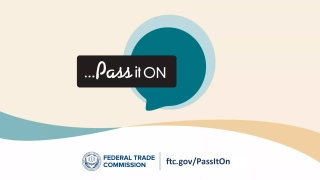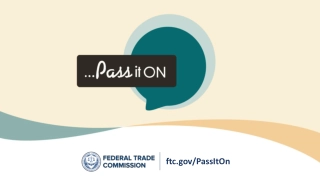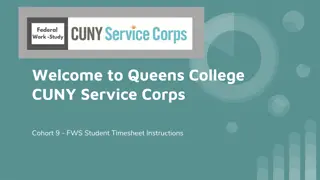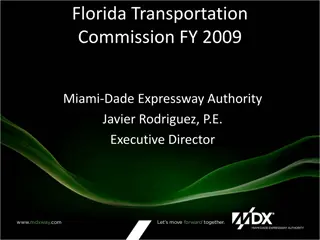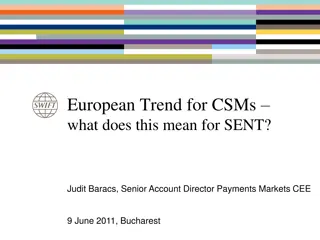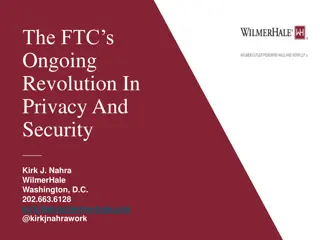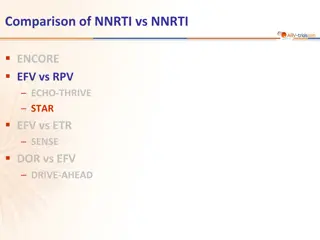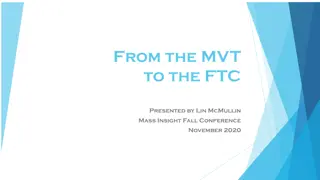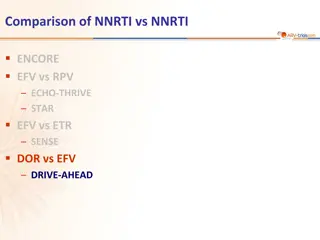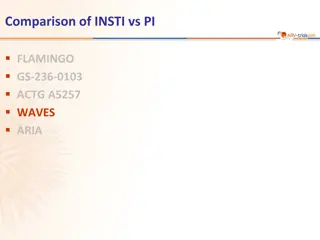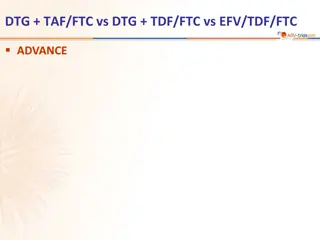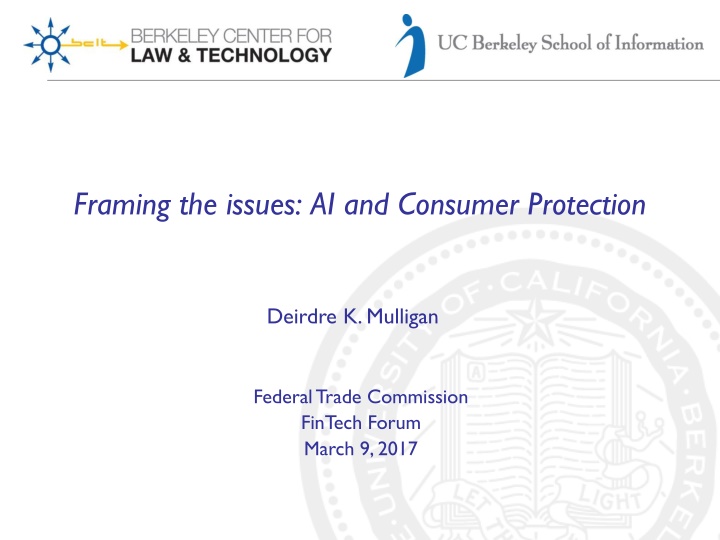
AI and Consumer Protection: Framing Ethical Challenges in Financial Advising Systems
Explore the ethical implications of AI in financial advising systems, focusing on intentional bias, data accuracy, privacy concerns, and the shifting dynamics of power and responsibility between algorithms and human stakeholders. Delve into the complexities of designing systems with functional fidelity, managing values at risk, and ensuring transparent handoffs in socio-technical environments.
Download Presentation

Please find below an Image/Link to download the presentation.
The content on the website is provided AS IS for your information and personal use only. It may not be sold, licensed, or shared on other websites without obtaining consent from the author. If you encounter any issues during the download, it is possible that the publisher has removed the file from their server.
You are allowed to download the files provided on this website for personal or commercial use, subject to the condition that they are used lawfully. All files are the property of their respective owners.
The content on the website is provided AS IS for your information and personal use only. It may not be sold, licensed, or shared on other websites without obtaining consent from the author.
E N D
Presentation Transcript
Framing the issues: AI and Consumer Protection Deirdre K. Mulligan Federal Trade Commission FinTech Forum March 9, 2017
Values: system Intentional bias Bias through process, values of designer Complexity Tumitu Design
Values: In Financial Advising Systems Intentional bias incentive structure for the financial professional Incentive structure of firm Portfolio of funds Designers values as source of bias Intake process how to assess risk self assessment, scenarios, hypotheticals Presentation of options (framing, ordering, etc.) Complexity data, algorithms, interactions, personalization machine learning Multiple parties
Values: data used in financial advising systems Data considered relevant What data to request and use about clients What data about funds Accuracy and quality information about funds limited or gaps in data; asymmetry in access cf. other players clients input sources, accuracy, incentives to update cleaning Sampling bias who is poorly represented in training data from which models are built?
Values at risk Privacy lots of personal information to feed systems Autonomy nudging (Dream Forward emotional advisor) output of model taken as objective b/c its math or machine Fairness investor profiles (what characteristics; non-distributive group profiles) impact on portfolio offered, defaults estimated value of clients trapped by past behavior (group or ind) Responsibility responsibility for outputs/outcomes as tasks are reallocated
Handoffs require attention to Functional requirements What properties must a system have to support function? translation work is critical! Socio-technical systems people and algorithms as organizations: how do they shift power, responsibility, resituate domain expertise? how do the constraints of code and law interact? How do we assure assumptions and limits are correct, understood and shared? Managing values and risk not solve for them once and for all. It s a dynamic ecosystem. Can be very volatile due to velocity, volume, variety; and actors with different motives. Social input into the guts of the machine and data backend transparency is insufficient need methods of participation and interpretation.
Consumer Protection Challenges Do consumers understand the product and how it works? Interpretability: processes what the algorithm does how it does it rules who controls algorithm (sources of bias) what data feeds it (sources, kinds) Biases (does it favor certain funds, and why)
Consumer Protection Challenges Can consumers and financial professionals interact with the systems safely? Exposing the assumptions and limitations of the model embedded in the algorithmic system handoffs between algorithm and humans (oob actions) Need for tools to foster understanding Simulations and other ways of educating consumers about services (playing with system) Access to their data, and how they are profiled
Thanks Research supported by National Science Foundation under "INSPIRE: Value- Function Handoffs in Human-Machine Compositions NSF Award number SES 1650589 (Helen Nissenbaum & Deirdre K. Mulligan)


